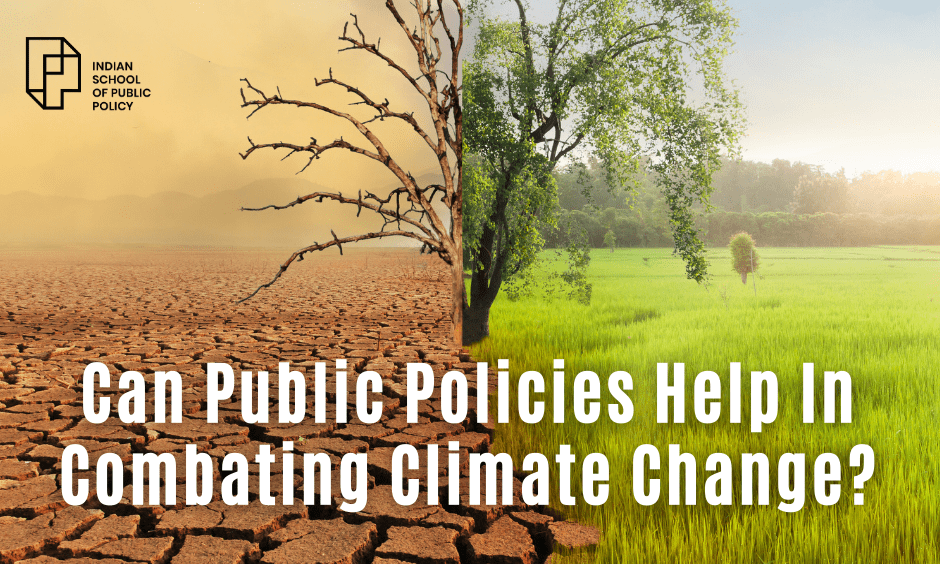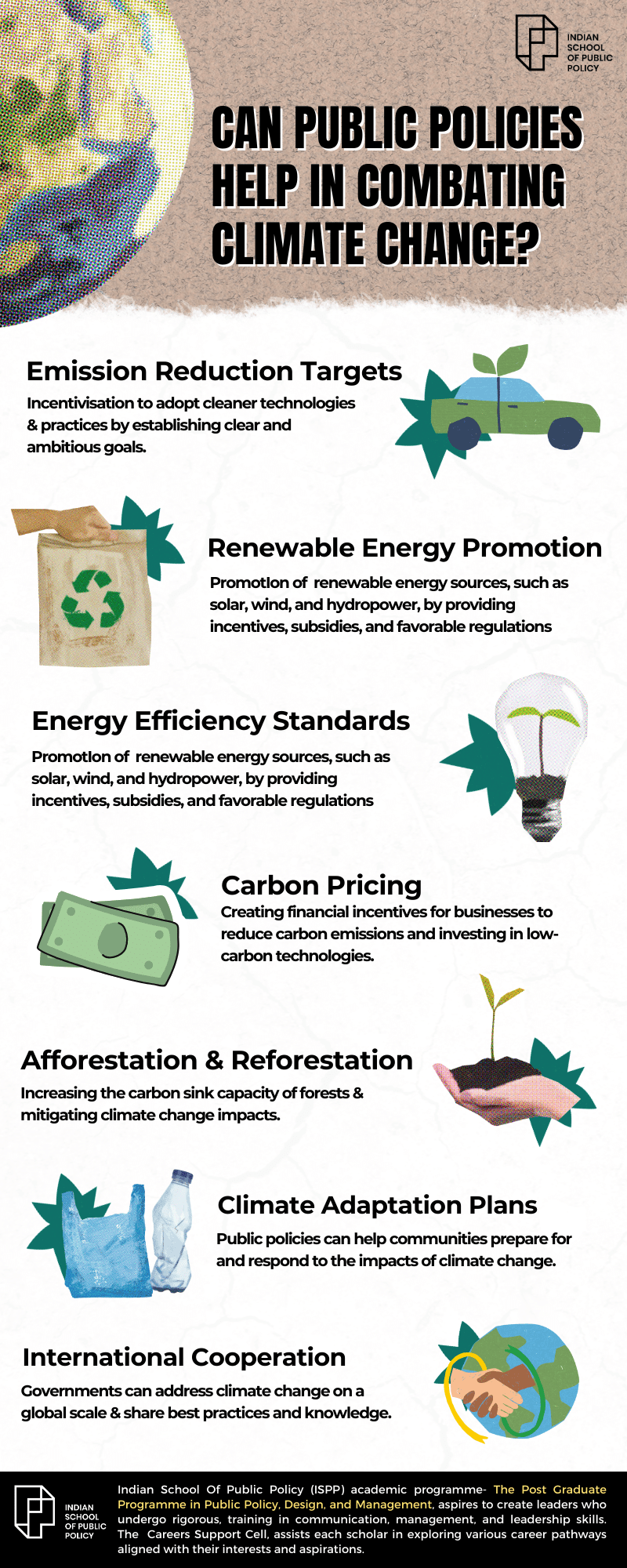
Can Public Policies Help In Combating Climate Change

What Climate Change Challenges Is India Facing?
Climate change is causing more frequent and severe impacts on India’s environment, economy, and society. The country faces challenges like heat waves, floods, and declining groundwater levels. Heatwaves, in particular, have had costly effects on people’s well-being and the economy. Floods have also resulted in significant damage, affecting agriculture and water availability.
These climate-related disasters are affecting local communities living in vulnerable areas, known as ‘climate frontiers.’ As a result, some people are forced to migrate within the country, and there may be a potential refugee crisis from neighbouring nations like Bangladesh and Pakistan.
India is already grappling with the health consequences of air pollution. The country’s emissions are causing poor air quality, ranking low in global air quality assessments. This pollution has substantial economic costs, resulting in a significant loss to India’s GDP each year.
To address these challenges, action needs to be taken to mitigate climate change and build resilience in vulnerable communities.
Can Public Policies Help In Combating Climate Change?
Public policies play a crucial role in combating climate change. Climate change is a global challenge that requires collective action from governments, industries, and individuals. Public policies provide a framework for guiding actions and behaviours at the national, regional, and local levels to address climate change effectively. Here are a few ways –
- Emission Reduction Targets – Public policies can set emission reduction targets for industries, transportation, and energy sectors. By establishing clear and ambitious goals, governments can incentivise the adoption of cleaner technologies and practices.
- Renewable Energy Promotion – Governments can promote renewable energy sources, such as solar, wind, and hydropower, by providing incentives, subsidies, and favourable regulations for renewable energy projects.
- Energy Efficiency Standards – Public policies can enforce energy efficiency standards for buildings, appliances, and industrial processes, reducing energy consumption and greenhouse gas emissions.
- Carbon Pricing – Carbon pricing mechanisms, such as carbon taxes or cap-and-trade systems, create financial incentives for businesses to reduce carbon emissions and invest in low-carbon technologies.
- Afforestation and Reforestation – Public policies can support afforestation and reforestation initiatives to increase the carbon sink capacity of forests and mitigate climate change impacts.
- Climate Adaptation Plans – Public policies can facilitate the development of climate adaptation plans to help communities prepare for and respond to the impacts of climate change, such as extreme weather events and sea-level rise.
- International Cooperation – Governments can engage in international agreements and partnerships to address climate change on a global scale and share best practices and knowledge.
By combining efforts at all levels of society, public policies can play a vital role in combating climate change and protecting the planet for future generations. This calls for seasoned professionals to get on board and design robust public policies since that’s what it all depends on.
PDM By ISPP Is The Way To Go
ISPP’s Post Graduate Programme in Public Policy, Design, and Management is their most important programme for people who want to positively impact public policy. It’s a one-year programme that teaches individuals about policymaking through a challenging curriculum. The ISPP PDM Programme offers opportunities to connect with others in the field, access professional forums, and receive career support.
In this programme, students will deeply understand public policy and learn about design and management principles. The goal is to help them become better thinkers and executives in creating effective policies. They will learn how to analyse and develop policies and consider practical aspects like finances, capabilities, and ethics. The programme focuses on the best ways to implement, manage, and evaluate policies in public administration and policy domains.
Register your Interest to Study at ISPP
ISPP Success Stories


Check Infographic



